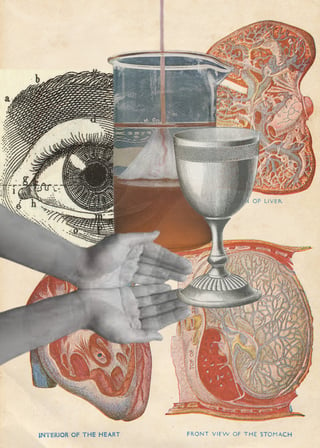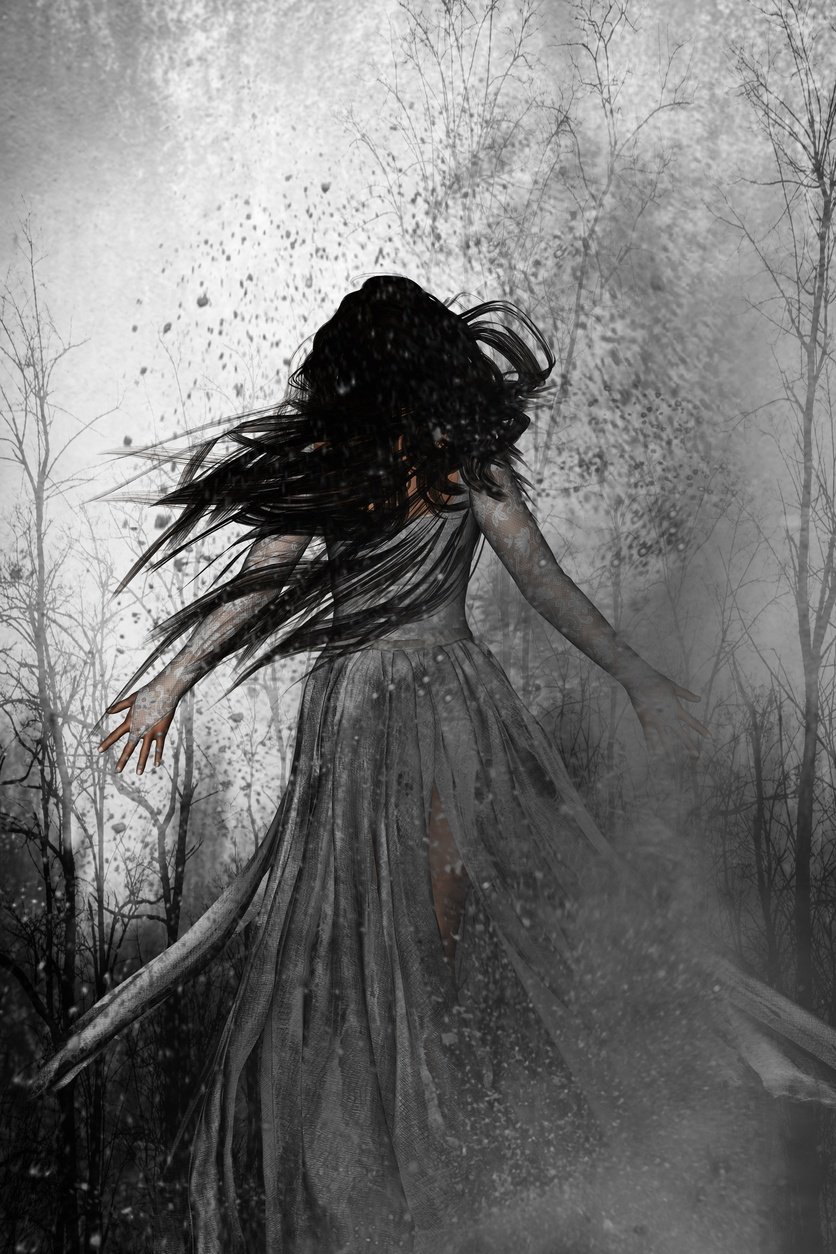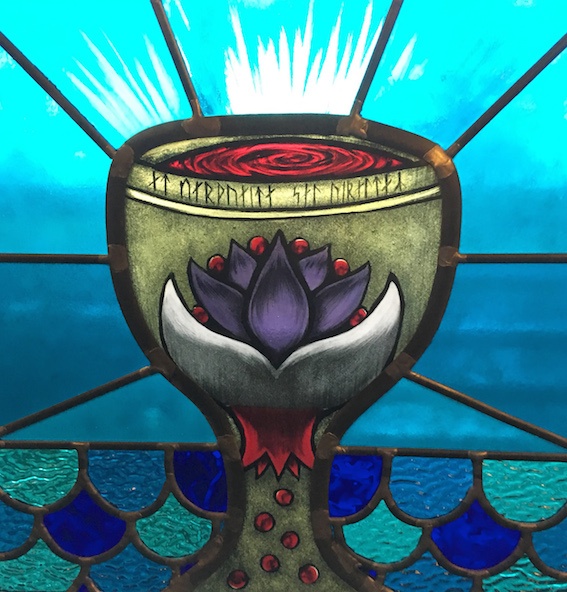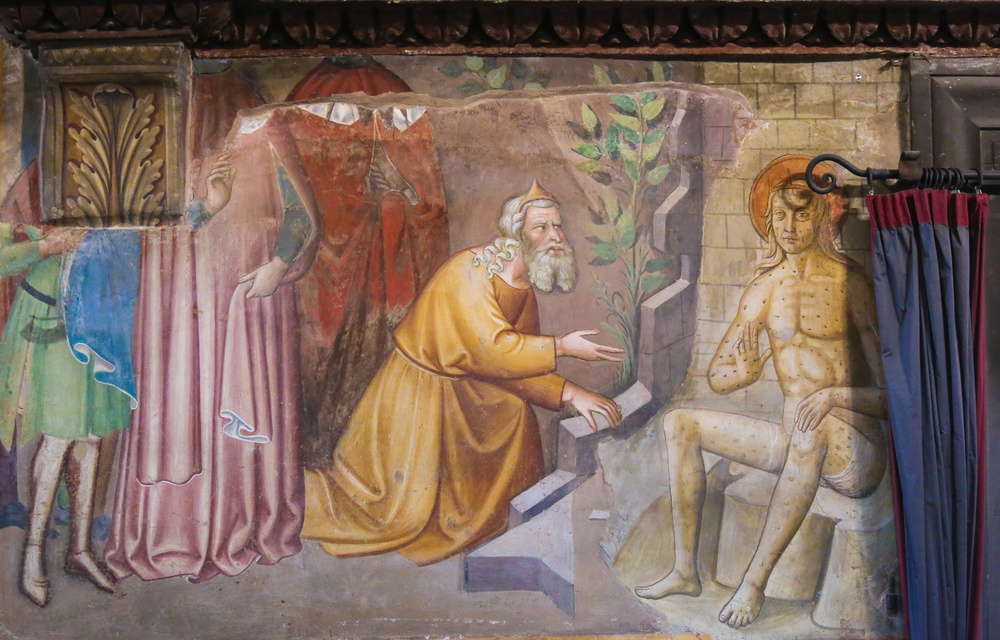Cultural Complexes and the Mythopoetic Imagination in the 21st Century: An Interview with Thomas Singer, Ph.D.
Dr. Thomas Singer will be giving a keynote presentation, “Portals to the Imaginal in a Digital Era: Cultural Complexes and the Mythopoetic Imagination in the 21st Century,” for Pacifica’s upcoming event, “Portals to the Imaginal: Re-Visioning Depth Psychology for the 21st Century,” on October 7-9, 2022. An immersive learning event in celebration of the campus re-opening of Pacifica. For more details, visit us here.
Read More
Posted in:
Mythology,
Education,
depth psychology,
mythological,
Pacifica Graduate Institute,
Spiritual
A guest blog post by Mary A. Wood, Ph.D., co-Chair of the M.A. Program in Engaged Humanities and the Creative Life at Pacifica Graduate Institute.
“The soul should always stand ajar, ready to welcome the ecstatic experience.” —Emily Dickinson
There are moments in life when time seems to stand still—moments when we find ourselves transfixed, and eventually transformed. These moments can be cosmic in scale, as reflected in the awe that we feel when beholding a rare solar eclipse, or an approaching storm. These moments may also be quite intimate, but no less moving, such as when we witness an animal emerging from hiding or when we hear an exquisite song. We recognize, and always remember these moments because they are announced by bodily sensations; we gasp, our hearts beat faster, and tears often flow. Our bodies tell us that the ordinary has given way to the extraordinary. These experiences are best described as “aesthetic,” as we find ourselves living, at least for a few moments, as creatures that are gloriously and achingly alive.
Read More
Posted in:
Joseph Campbell,
The Psyche,
James Hillman,
archetypes,
transformative,
C.G. Jung,
Psychology,
art,
soul,
depth psychology,
symbol,
mythological,
humanities,
sacred,
symbolism,
Spiritual
A blog post by Melissa Ruisz Nazario
At this time of year in the northern hemisphere, the earth’s axis orients away from the sun, temperatures cool, and many of us celebrate with loved ones some form of thankfulness and respite from work–modern iterations of our ancestors’ harvest festivals.
Though the concept of gratitude is also ancient, it has become a bit of a modern buzzword. So, is gratitude really as beneficial as the masses say it is? Actually, yes. Robert A. Emmons and Robin Stern, researchers known for their work in studying gratitude, reviewed studies on the subject and list several of the physical, emotional, and psychological outcomes of cultivating gratitude in “Gratitude as a Psychotherapeutic Intervention.” [1]
Read More
Posted in:
The Psyche,
archetypes,
transformative,
Psychology,
soul,
depth psychology,
mythological,
Spiritual,
resources
Phoenix Force and Feminine Jouissance: Reading Myth in Comic Books and Pop Culture. Interview with David M. Odorisio, Ph.D. A Guest Blog Post by Devon Deimler, Ph.D.c.
You began forming your Joseph Campbell Round Table presentation last Fall (2017). We had to postpone the event due to the Thomas Fire and subsequent mudslides. Of course, the mythical phoenix cyclically burns and rises from ashes. What first drew you to the phoenix myth/X-Men character and how has your relationship with it/her transformed after experiencing a wildfire?
My plan was to spend the month of December preparing for the January presentation. This was after spending the past year immersed in the Phoenix material and almost obsessively researching every X-Men storyline that involved, referenced, or developed her or her daughter’s character (another Phoenix). I live in a small house in the Toro Canyon area of Santa Barbara County, which became one of the heaviest and prolonged fire-fighting areas during the Thomas Fire. The fire was progressing closer and closer to the County line, and spreading to my surrounding area as I was literally putting together the presentation. At one point it was raining ash on my neighborhood. My yard was a blanket of snowy white ash. The visibility was maybe 10-15 ft. and the air quality outdoors was terrible – pure smoke. Here I am, spending hours indoors each day at work on this research, immersed in images of a fiery female figure and here She is right at my front door. I reached a point where I had to pause and ask, “Am I invoking this?” Of course it wasn’t personal, but it was personal at the same time, because I’m internalizing and making my own meaning from the experience as we all have for those of us who have lived through it.
Read More
Posted in:
symbol,
mythological,
collective trauma,
narrative,
storytelling,
symbolism,
complex
A guest post by Craig Chalquist, Ph.D.
Why do we study and practice depth psychology?
For many reasons. The urge to know ourselves better. Persistent dreams we cannot yet decipher. The failure of quick fixes and mechanical solutions to make us feel alive again. The desire to understand and reshape the cultural chaos around and within us. Lack of career fulfillment. Fright from having fallen down a rabbit hole in our lives: where is the map to guide us? The yearning for social justice. The urge to reinhabit our bodies. The aspiration to stand in the service of genuine and lasting change.
The motives are many, but for me, one stands out: depth psychology as a path of reenchantment.
Read More
Posted in:
alchemy,
symbol,
mythological,
alchemist,
ancient egypt,
symbolism
From Information to Inspiration: An Interdisciplinary Career Based on Myth, Music, Depth Psychology, and the Arts: An Interview with Kayleen Asbo, Ph.D. A Guest Blog Post by Bonnie Bright, Ph.D.
As a cultural historian, Kayleen Asbo has crafted a fascinating career by weaving together mythology, depth psychology, music, literature, and women’s studies. She uses this interdisciplinary tapestry to teach, lecture, perform, and lead cultural, historical, and spiritual pilgrimages around the world in a remarkable set of venues. She has perfected the ability to offer experiential learning through her sheer passion for what she does. She cannot imagine how each of these fields could be contemplated as being separate from one another.
Read More
Posted in:
Mythology,
art,
depth psychology,
mythological,
music
 A guest post by Mary A. Wood
A guest post by Mary A. Wood
“The essential function of art is moral. Not aesthetic, not decorative, not pastime and recreation. . . . But a passionate, implicit morality, not didactic. A morality which changes the blood, rather than the mind. Changes the blood first. The mind follows later, in the wake.” —D.H. Lawrence
“Alchemy starts in desire; desire needs direction.” —James Hillman
Blood is thicker than water—or so the saying goes. Like a myth in miniature, a complete worldview is illuminated in just five words. The bond of family or tribe, whether formed through birth, marriage or intense shared experiences (such as military service) is evident as well when we speak of “blood brothers,” “bloodlines,” and “blood oaths.” Blood itself has always been highly symbolic. It “evokes life’s precious value” as it courses through veins, yet when it escapes it “congeals into a dark haunting symbol of death” (Ronnberg 396). Those that work with blood, such as the surgeon and nurse, share a specialized sphere with the priest who daily transforms water and wine into imaginal blood. Through a multitude of ritualized signals and ceremony (such as uniforms, insignia, and dedicated locations where their work is conducted) all continue to be set apart from the rest of society much like the ancient shaman, alchemist and healer. As “workers of blood” these modern-day practitioners fulfill vital and even sacred roles, yet they are not alone—the artist and the poet are also inheritors of the talents, and the duties, of those who work with blood—“the poet is the transcendental doctor” (Novalis, qtd. in Hillman, Alchemical 340). When the bonds of blood begin to boil over and congeal into unconscious, ominous masses, it is not the physician, nor even the politician, but the artist and poet that can best halt the contagion.
Read More
Posted in:
Mythology,
art,
mythological,
humanities,
alchemist
Mythological and Archetypal Perspectives on Childbirth in Contemporary Culture: An Interview with Britta Bushnell, Ph.D.
A Guest Blog Post by Bonnie Bright, Ph.D.
When yoga teacher Britta Bushnell first became pregnant, it was natural for her to add prenatal yoga to the yoga classes she was already teaching. This move eventually led to her training with childbirth specialist, Pam England, the author of the classic birth book, Birthing from Within[1]. England had already formulated a remarkable method that integrated mythology to help parents prepare for birth as a rite of passage, and for Bushnell, the training was transformational—so much so that it ultimately led to the two women becoming business partners.
Read More
Posted in:
Mythology,
transformative,
Education,
mythological,
somatic,
the body,
rite of passage
After Dr. Evans Lansing Smith (Lans) gave a series of lectures on the Grail Romances at the C.G.Jung Institute in Kusnacht, Switzerland, one of his attendees, Dr. Michael Best, introduced himself and proposed planning a trip that would appeal to the analysts and candidates at the institute, and to students and alumni at Pacifica Graduate Institute. This idea has since materialized, and in July 2018, Lans will lead a group of scholars, adventurers, and historical and myth enthusiasts through an intellectual and stimulating tour of Southwestern England.
Read More
Posted in:
Mythology,
literature,
mythological,
storytelling
Psyche and the Sacred: An Interview with Dr. Lionel Corbett. A guest post by Bonnie Bright, Ph.D.
"You can't define the sacred," insists Pacifica professor and author, Dr. Lionel Corbett. "We can only talk about how we experience it. When C. G . Jung contemplated the sacred, he used the criteria of German theologian, Rudolf Otto, who described the experience of the sacred or the holy as “numinous”—that is, something that is mysterious, tremendous, or fascinating, having a powerful emotional quality beyond the ordinary or the everyday ego."
Corbett, a Jungian analyst who also trained in medicine and psychiatry, offers some stories from Biblical myth that exemplify such qualities of this experience. Rather than attributing such transformational events to the Judeo-Christian God, Corbett attributes them to what Jung calls the “objective psyche” or the “autonomous psyche.”
Read More
Posted in:
The Psyche,
C.G. Jung,
psyche,
mythological,
sacred








 A guest post by Mary A. Wood
A guest post by Mary A. Wood



